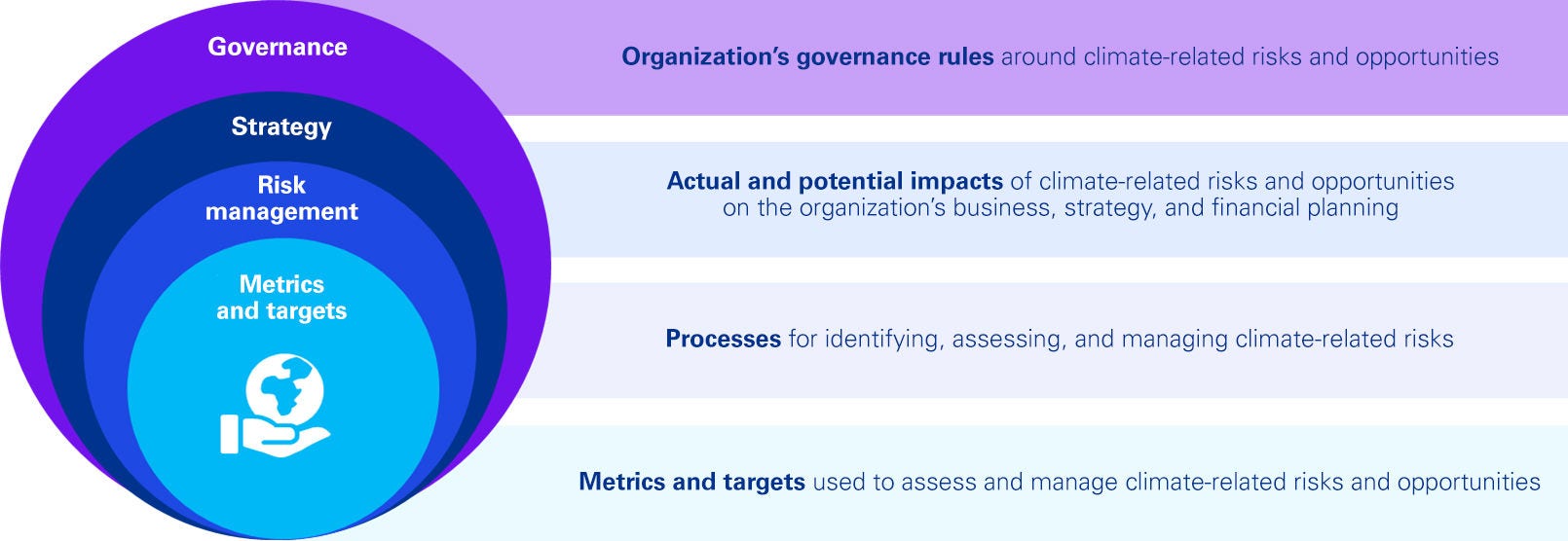Climate change is one of the greatest environmental, social and economic threats to humanity, including business. Its effects will threaten infrastructure and supply chains. However, these challenges are not only threats, but also opportunities to adapt to climate change, a new imperative of strategic management.
KPMG provides comprehensive services helping clients understand the climate risks in their operations and supply chain, hedge against risks, and seize opportunities in compliance with mandatory reporting, the voluntary TCFD reporting framework and ESRS standards.
What are climate-related threats and opportunities, and why do they matter?
Climate change will have a significant impact on how companies do business. As indicated in the latest report of the Intergovernmental Panel on Climate Change (IPCC), today, due to the burning of fossil fuels, we are already living in a world that is 1.1°C warmer than it was in 1850–1900, the height of the industrial revolution.
Threats
Estimates indicate that global warming of 3°C compared to the pre-industrial period will result in a loss of up to 18% of global GDP by 2050.
Risks can be divided into physical and transitional.
Physical :
- additional cooling/air conditioning costs due to heat waves,
- costs of repairing damage to buildings and infrastructure due to storms and flooding,
- risks to crops leading to higher food prices.
Transitional:
- more regulations and expanded markets for trading in carbon emission allowances,
- technological disruptions,
- changing consumer preferences,
- risks to employee motivation and corporate reputation.
Opportunities
The level of sustainable investment will total around USD 50 trillion in 2025 compared to the current level of USD 35 trillion.
Climate-related opportunities may include:
- access to new markets,
- development of alternative energy sources,
- increased resource efficiency,
- development of new products and services,
- increased resilience of infrastructure and supply chains.
Climate change challenges for companies
The growing interest in climate change on the part of international institutions, regulators, investors and consumers will shape the environment in which companies around the world operate. Reporting climate-related risks and opportunities in accordance with the TCFD guidelines has already become mandatory in the UK and New Zealand.
The development of non-financial reporting in the European Union, with introduction of the European Green Deal and entry into force of the Corporate Sustainability Reporting Directive (CSRD) and ESRS standards starting in 2024, will require disclosure of climate-related risks and opportunities by large companies.
ESRS - European Sustainability Reporting Standards
ESRS are a set of 13 documents drafted under the auspices of the European Commission, specifying the method of reporting non-financial information by companies covered by the CSRD. The requirements for disclosure of climate-related risks and opportunities are set out in standard E1 Climate Change and annex.
The most popular framework for disclosing climate-related risks and opportunities is the recommendations from the Task Force on Climate-Related Financial Disclosures (TCFD), which has identified four areas of analysis and assessment:

KPMG’s support in analysis of climate-related risks and opportunities
KPMG offers an integrated process to help you better understand the risks and opportunities associated with climate change in your business. This will enable the development of mitigation and adaptation solutions adequate to the scale of the challenges in accordance with TCFD guidelines, CSRD and ESRS.

What tools do we use?
In our analysis, we examine climate scenarios—descriptions of hypothetical, likely futures, helping companies identify the potential implications for their strategy if the future described in the scenario occurs. This makes it possible to locate key intervention points to build the company’s resilience to the climate challenges it faces.
What are the benefits of the service?
About us
At KPMG, we focus on innovative solutions, tailored to the specifics and needs of the client. Drawing on the experience of KPMG’s global network of experts, we effectively adapt innovative ideas and implementations to Polish conditions.
Contact us
Learn more about how KPMG's knowledge and technology can help you and your business.
Newsletter
Want to receive the latest business updates? Subscribe to our newsletter.

